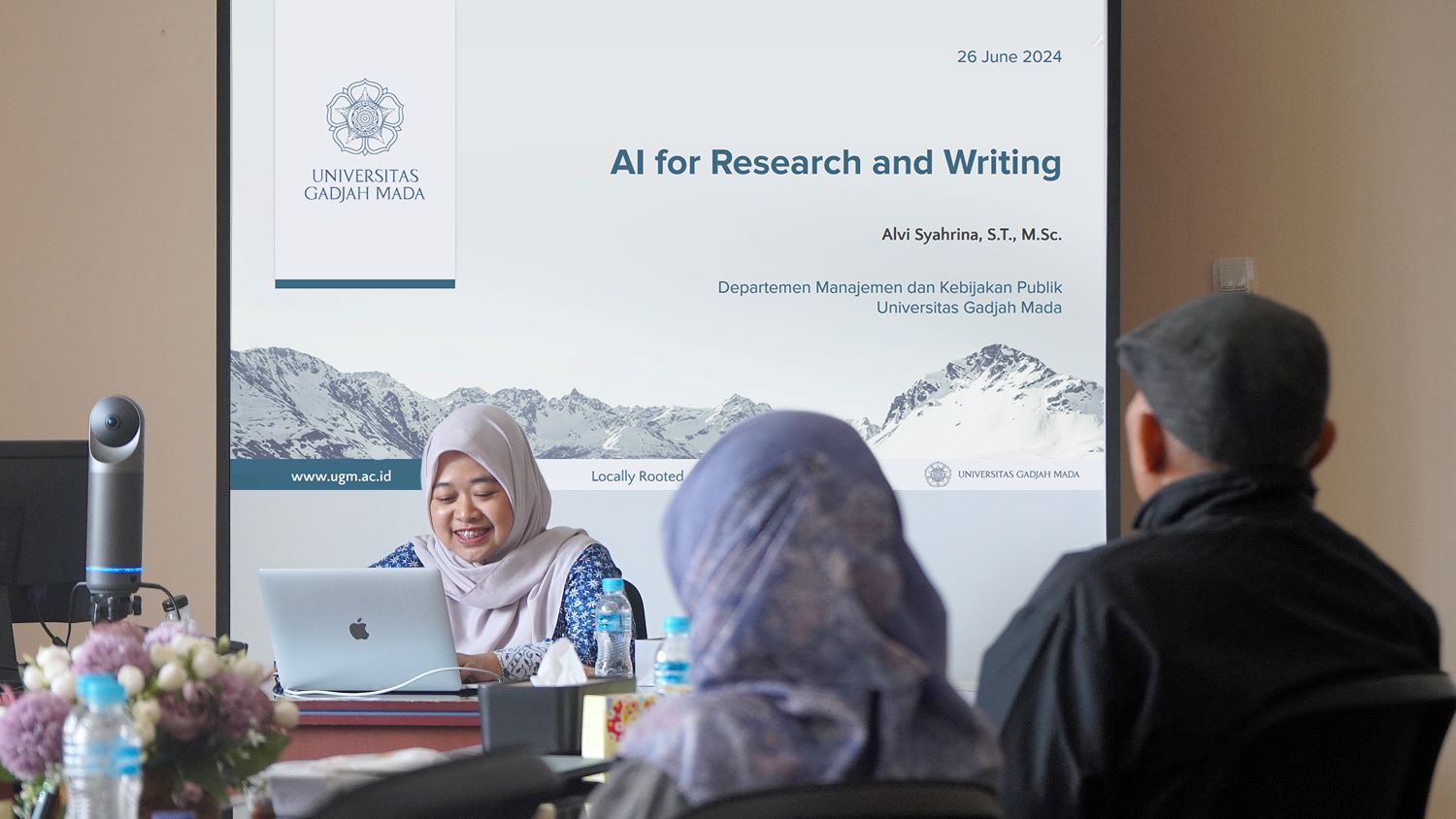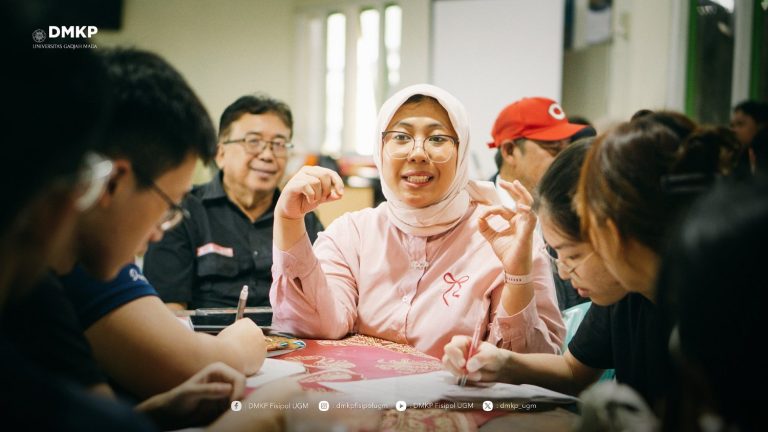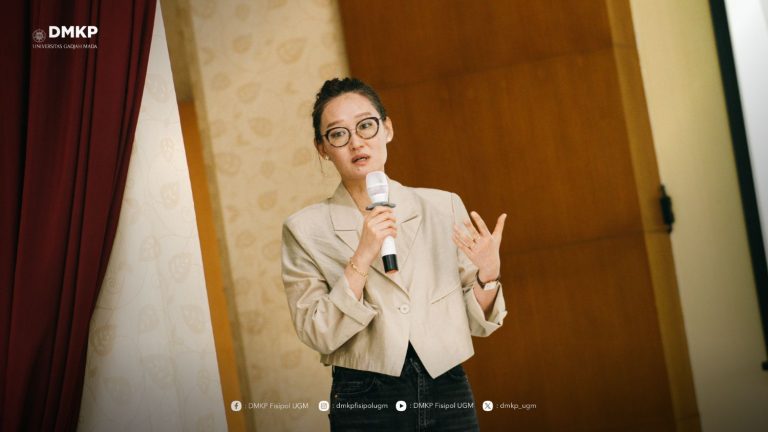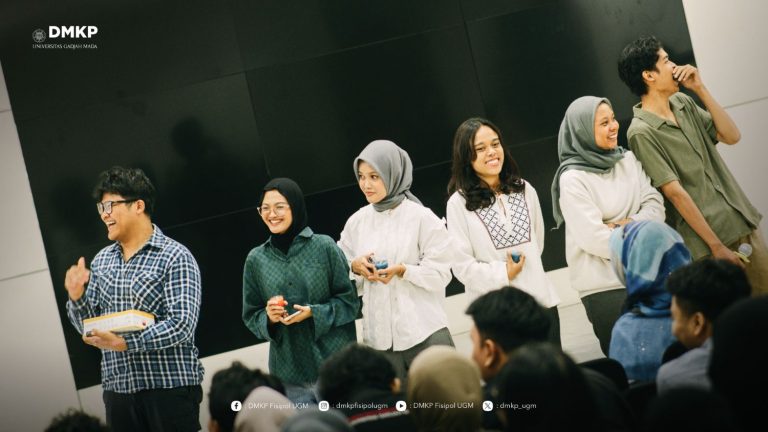The Department of Management and Public Policy (DMKP) at Universitas Gadjah Mada held an internal workshop themed “Utilizing AI for Academic Writing” on Wednesday, June 26, 2024. This event was conducted in a hybrid format, both in the Meeting Room Lounge of the BC DMKP Building and online. Alvi Syahrina, ST., M.Sc., a lecturer at DMKP, was the speaker for the workshop, which was specifically aimed at DMKP lecturers.
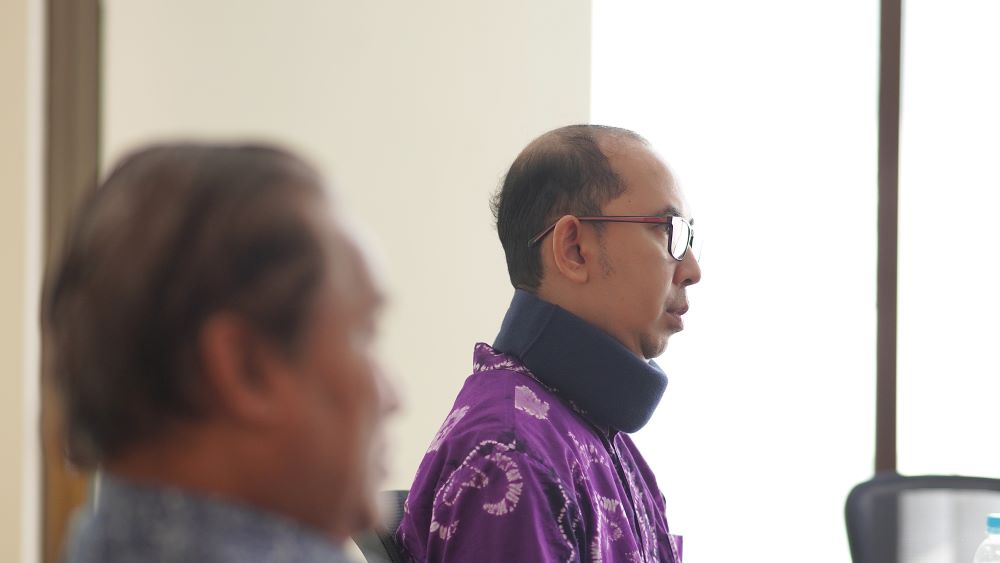
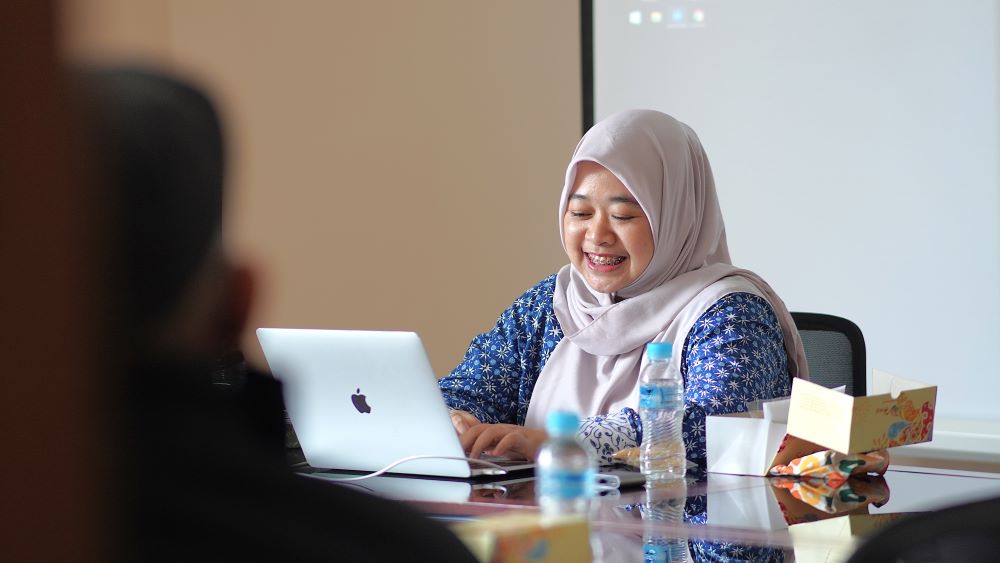
Alvi Syahrina explained how AI can assist in various stages of research, from designing research, data collection, data analysis, to writing. At the research design stage, AI can help generate ideas, formulate research questions, and suggest data sources. For data collection, AI is useful for finding relevant datasets and translating texts. Subsequently, AI can assist in data analysis by coding data and suggesting topics for analysis. During the writing stage, AI plays a role in improving the quality of writing and correcting grammar.
Additionally, Alvi discussed the use of AI in the academic world, including literature searches using tools like Connected Papers, Litmaps, Scispace, and Scite. These tools make it easier for researchers to find relevant literature. For gaining insights, AI tools like ChatPDF and ChatGPT can be used. Note-taking can also be more efficient using tools like Research Rabbit, while writing aids such as Grammarly, Quillbot, and Writefull help enhance the quality of academic writing.
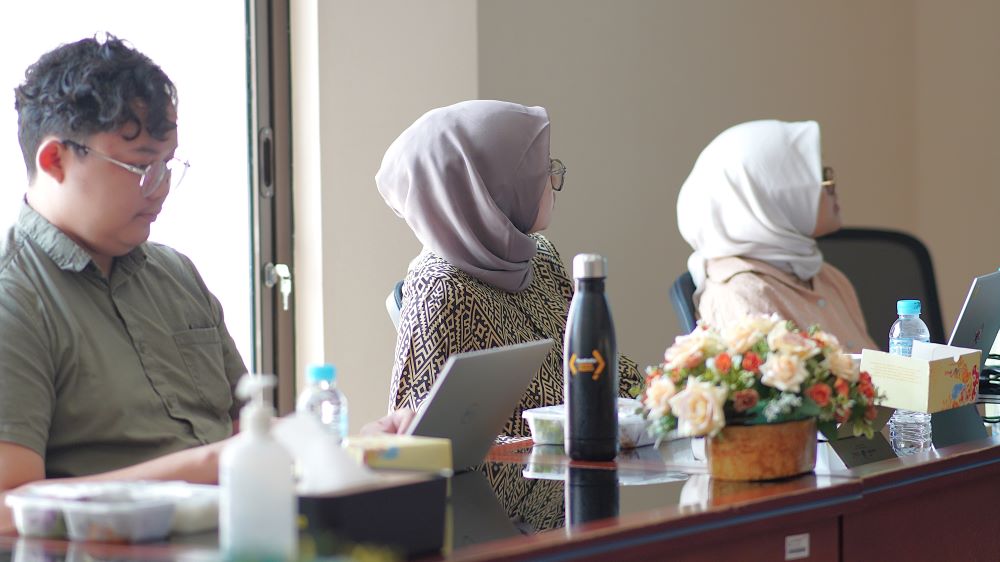
In the workshop session, Alvi also highlighted the potential use of ChatGPT in academic writing. ChatGPT can be used for various purposes such as paraphrasing to prevent plagiarism, summarizing long texts, checking grammar, and creating interview questions and writing computer code. Alvi provided explanations on prompt engineering techniques, which involve creating good prompts so that AI can provide responses that meet the needs. The steps explained included determining specific goals, providing context, conveying expectations regarding format or the intended audience, and mentioning sources or plugins to be used.
Although AI offers many benefits, Alvi also reminded about the risks of its use. Some risks to consider include inaccurate information, the risk of plagiarism, copyright infringement, and the potential misuse of AI technology. Therefore, it is important for users to understand the ethics of using AI so that this technology is used responsibly and in accordance with academic principles.
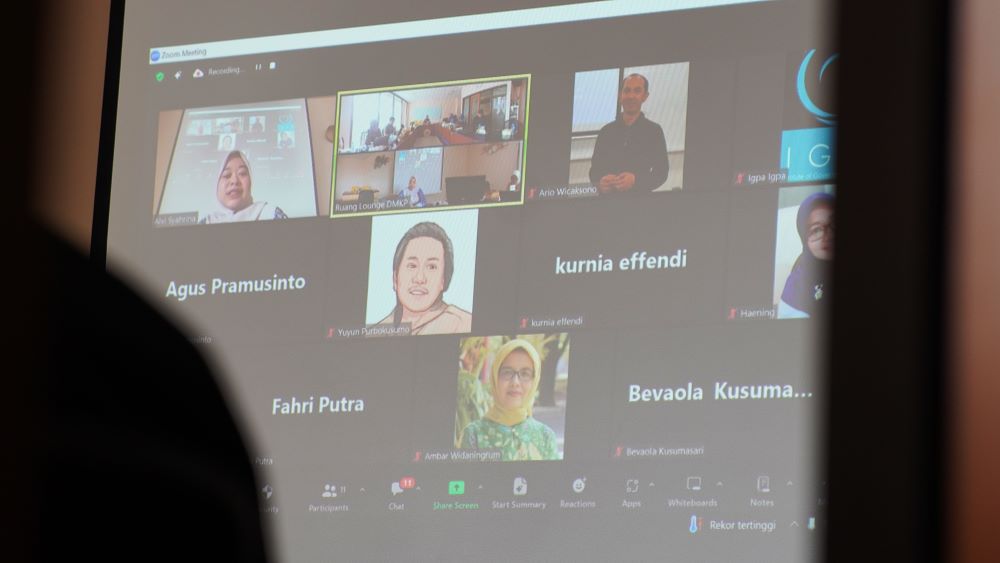
The workshop emphasized the importance of lecturers learning about AI, not only to improve the quality and efficiency of their own research but also to understand how students use AI in their coursework. This way, lecturers can recognize well-done AI-assisted writing and distinguish it from poorly executed AI-generated content, enabling them to evaluate students’ assignments more fairly.

